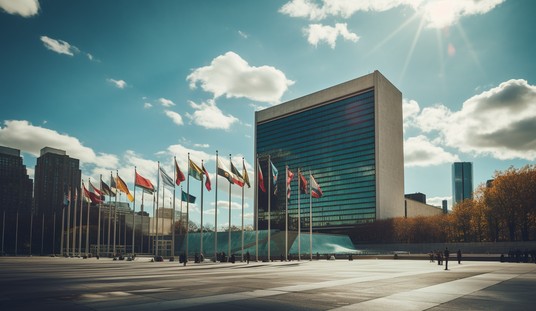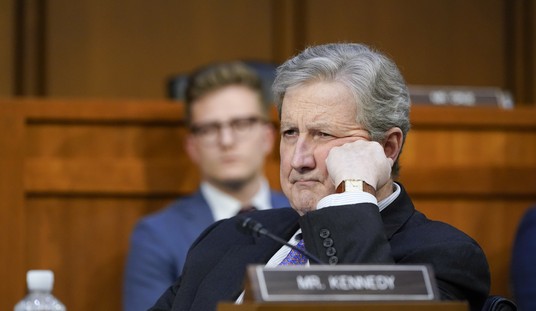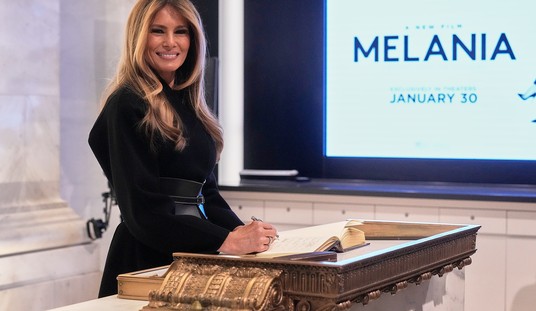Once again, Pope Francis has criticized what he perceives as the excesses of capitalism, offering a challenge that every champion of economic liberty should respond to. In fact, we should be grateful for these challenges. The Pope gives us a whetstone upon which our reason and moral arguments can be sharpened.
I don’t mean to be too critical of Pope Francis – whose comments, delivered both in writing and during interviews, have been misappropriated by socialists looking to claim him as one of their own. He’s spoken out against the excesses of State power as well. I believe he has a somewhat unfortunate habit of using the language of the Left, such as disparaging references to “trickle-down economics,” to express what is more properly understood as a call to greater individual responsibility, and a devotion to voluntary charity. I wholeheartedly agree with that part of his message. It’s one of the places where I diverge from philosophies like objectivism, and Ayn Rand’s caution against the “sin of altruism.”
However, it’s worth remembering that part of the “sin of altruism” critique is based on the tendency of statists to insist that everything good must be mandatory. They derive power from their belief – quite literally religious in its intensity – that the State is the sole champion of social justice, the ultimate repository of national morality. If charity is good, they argue, then everyone who does not receive it should be compelled to provide it… with an almighty government skimming a fat percentage off the top for its services as a broker, of course. Likewise, everything socially desirable must be managed, subsidized, or even provided “free” by the government. We cannot risk allowing the greed of private individuals and companies to jeopardize “access” to something the Ruling Class has decided everyone simply must have.
For this reason, I grow uneasy when a figure of great moral authority, such as the Pope, speaks in a way that makes him useful to the totalitarian Left. Capitalism is inseparable from freedom – when one departs, the other does not long remain secure. And freedom is the best possible antidote to poverty.
What is a moral and just society supposed to do about poverty? Is our strategy to make it less common… or less unpleasant? Those are mutually exclusive goals, in part because of human nature. If poverty is made more comfortable, a sizable number of people will see no reason to lift themselves out of it, and they’ll find their decision eagerly accommodated by socialists looking to secure their vote. It is an iron law of economics that a society gets more of what it subsidizes. When it becomes politically profitable to subsidize poverty, no one should be surprised that the result is more widespread poverty.
Can poverty be eliminated by even the wealthiest society? From a practical standpoint, yes. Much of the Western world has almost completely eradicated what the rest of the globe would consider true poverty. But the definition is a political construct, so it’s relative, and subject to revision. The “impoverished” citizen of the United States is not starving, dying in the cold, or suffering for lack of vital medical treatment. Truly impoverished people in other parts of the world – the suffering masses Pope Francis is most urgently worried about – would look in wonder upon the luxuries enjoyed by America’s poor. But of course, the Left deliberately seeks to conflate the two, so when we talk about something like reducing the absurdly bloated food stamp program, we’re supposed to imagine withered skeletons littering the streets.
Using the relative definitions of “poor” and “middle class,” should people who don’t work be poor? We may be largely united in the determination that people who cannot work should be provided for, with due protections against efforts to defraud the system – which, it should be noted, our immense super-government currently does not enforce very well. It’s also a matter of consensus that people who lose their jobs in the short term should have a “safety net” that keeps them from tumbling into financial ruin. But what about people who don’t work, or refuse to work, over the long term? How can we sustain the expense of providing them with lower-middle-class lifestyles, and how can it be morally appropriate to require working people to cover those costs?
Once again, there’s a world of difference between “can’t find a job” and “refuses to work,” and it can be rather difficult to distinguish between the two, although job-hunting requirements for welfare recipients are a good step in the right direction. It’s hard to design a safety net that cannot be used as a hammock. But we can engineer an environment of entrepreneurship, investment opportunity, and labor demand that causes people on the margins to choose working for a paycheck instead of the safety net. There are many factors contributing to such an environment, including regulatory barriers against business creation, the cost of labor, the burden of taxation, and the extent of welfare benefits. Strategically, to return to the first question asked above, we must choose between aggressive reducing poverty (by reducing its primary cause, unemployment) and making the welfare state comfortable enough to keep its beneficiaries comfortable indefinitely.
“Welfare” is no longer confined to people who would meet any definition of poverty. Working people with healthy income will receive tax subsidies to pay their ObamaCare insurance premiums, for example. The notion of forcing everyone to pay extra, so that people who are not poor can receive “free” benefits such as contraceptives they could easily afford to buy, is built deeply into the Affordable Care Act. The State decides what is “good,” and makes it compulsory. This drains huge amounts of money away from the private sector, especially given the notorious inefficiency and graft of Big Government. We are left with less freedom – a reduced ability to spend money in the pursuit of our individual ambitions – and also reduced resources to take care of the truly needy. A weak society is less able to extend helping hands.
It’s plain common sense to say that a wealthy person has much more money to contribute to charitable endeavors. This is true of society in general as well. Rich nations have more to give, both internally and to suffering people around the world. It could therefore be said that a compassionate nation has a responsibility to be as economically strong and productive as possible, in order to create the wealth necessary for benevolence. (That includes environmental benevolence, incidentally. Only wealthy nations can afford the kind of “responsible development” environmentalists praise… a point made by developing nations at every world conference.)
And wealth is inevitably, inescapably, universally a function of choice, which means freedom. Command economies are sick and weak. Political control is no match whatsoever for the distributed intelligence and energy of a vast free market. That’s partly due to the superior ability of a large number of free people to locate and exploit profitable opportunities, which central planners in distant capital cities tend to overlook. But it’s also because wealth is generated by the kind of mutually beneficial transactions people engage in voluntarily. Compulsive force is not necessary to make people do what they wanted to do anyway. Almost by definition, every mandated, hyper-regulated activity generates less total value than free people spending an equivalent amount of time and money. Sometimes that’s necessary, as in the case of military defense, which is not an inherently profitable activity. But only rarely is it necessary, or morally defensible.
We have grown sick from an excess of compulsive power, which drains away far more wealth than what it confiscates from us in taxes. That leaves us very noticeably less capable of creating the jobs that would help the willing poor earn their way into the middle class, producing benefits for all along the way. Every employer who cuts a payroll is doing battle against poverty, and together they’re winning far more ground than all the bureaucrats ostentatiously dedicated to winning the “War on Poverty.” Actually, the bureaucrats are losing ground, because poverty in America – according to those highly subjective measurements I mentioned earlier – is currently more widespread than it has been since the early days of the Great Society. And let’s not forget the incredible benefits brought to every level of society by the fruits of capitalist investment, which provides even modest households with wonders undreamed-of by the royalty of old.
If you would help the weak, you must be strong. A strong society is wealthy and prosperous. And if we would be prosperous, we must be free. We might define poverty itself as a shortage of freedom, in which no resources are available to exercise choice or fulfill ambition; the most desperate people of the world are entirely concerned with the daily struggle to find food and shelter. Conversely, people with a good supply of paper money, but few real choices in life, don’t feel wealthy. It is the doom of the Western world that its elites have persuaded it to seek moral superiority in mandated, controlled poverty… while the elites themselves live in fabulous luxury, peddling the idea of “income inequality” as “people without the right Party credentials making too much money.”













Join the conversation as a VIP Member